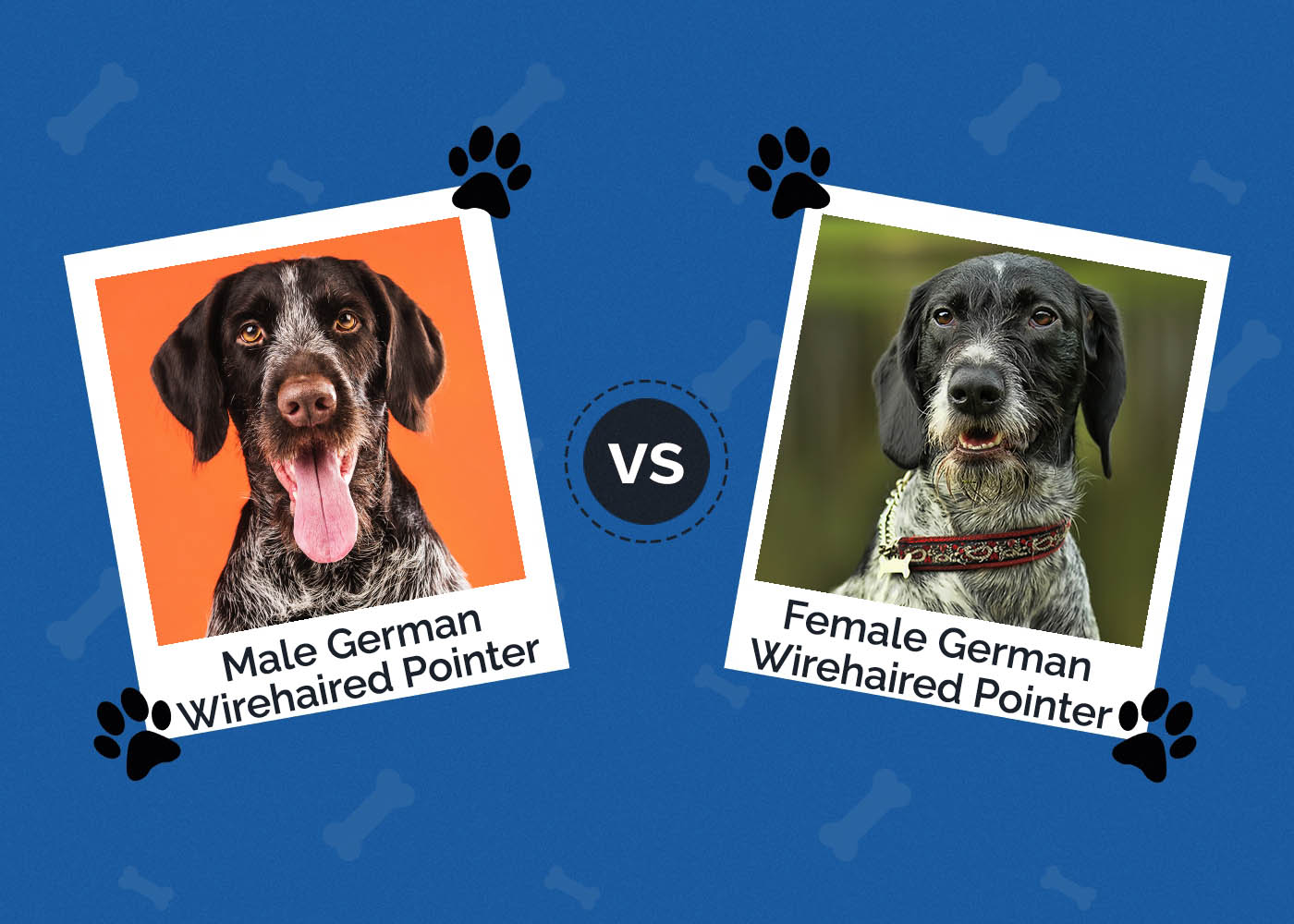Are Akitas Hypoallergenic? Vet Approved Facts & FAQ
Updated on

Click to Skip Ahead
The Akita is a stunningly beautiful breed that originated in Japan and is best known for being incredibly brave, loyal, and protective. If the Akita has caught your eye as a potential new companion but you or a member of your household are allergic to dogs, you may need to think twice.
While no dog is technically truly hypoallergenic, there are certain breeds that shed less than others. Unfortunately, Akitas shed a lot, due to their thick double coat, and therefore aren’t considered hypoallergenic. In this article we’ll talk more about dog allergies, why the Akita isn’t the best choice for allergy sufferers, and which breeds may be a better option.
Why Akitas Aren’t Ideal for Allergy Sufferers
Sadly, the Akita is not a great breed for allergy sufferers. They may not shed as much compared to other long-haired, double coated breeds, but will shed all year round. They will also blow their coats seasonally, also known as biannual shedding. If you are prone to allergies, this can be very problematic as it results in a lot of fur and dander being spread around your home.

All About Dog Allergies
Allergies are a common problem and can be triggered by many different foreign substances. According to the Asthma and Allergy Foundation of America, as many as 3 out of 10 allergy sufferers will be allergic to cats and dogs1. While cat allergies are much more common, dog allergies still plague many people.
While there are treatments available to manage symptoms, allergies can range from mild to severe and many dog lovers will be faced with having to limit their breed choices to those that do not irritate their allergies nearly as much.
What Causes Dog Allergies?
Allergies result from the immune system reacting to a foreign substance. The immune system naturally produces antibodies and allergies occur when the immune system identifies a particular allergen as harmful, even when it isn’t, and produces antibodies when it encounters the allergen.
Allergies can result from many sources including pollen, ragweed, molds, pet dander, medication, foods, venom, and much more. A dog allergy results due to an allergic reaction to proteins found in a dog’s skin cells, saliva, or urine. So far, 7 of these proteins have been identified, Can f-1 to Can f-7.
Allergies can occur at any age and the severity of an allergy will vary with each individual and can range from mild to severe. They can also change over time with symptoms potentially worsening or improving.

Signs of a Dog Allergy
The only way to know for sure that you suffer from a dog allergy is by visiting an allergy specialist and having an allergy test done. This will help you identify not only the types of allergens you suffer from, but also the severity at the time of the test. As with any other allergy, symptoms may vary from person to person, but the most common symptoms include:
- Sneezing
- Runny nose
- Watery eyes
- Itchiness or redness of the eyes
- Nasal congestion
- Postnasal drip
- Itchiness in the nose, roof of mouth, or throat
- Facial pressure and/or pain
- Swollen, blue colored skin under the eyes
- Cough
- Wheezing or whistling when exhaling
- Chest tightness and/or pain
- Shortness of breath
- Difficulty sleeping
Treatment and Management of Dog Allergies
Unfortunately, avoiding dogs is the best way to manage a dog allergy but that’s not going to work for everyone. Studies have also shown that dog allergens are frequently found in the homes of people who don’t own dogs too. For dog lovers that either have a beloved pup or are determined to get one, there are some things you can try to keep the symptoms under control.
Your allergist will help you determine the best treatment for your allergy, which will depend on the symptoms and severity, but here are some examples of things that can be done to manage dog allergies:
- Steroid nasal sprays
- Oral antihistamines or other oral medication
- Antihistamine eye drops
- Steroid inhalers
- Bronchodilators
- Allergy shots (immunotherapy)

Tips for Controlling Symptoms at Home
- Keep dogs out of the allergy sufferer’s bedroom and restrict them to only a few rooms.
- The allergy sufferer should not pet, hug, kiss, or snuggle the dog. If they insist, make sure hands and face are washed after any contact.
- Invest in an air purifier for all areas of the home. They are proven to reduce the number of allergens in the air.
- Vacuum all areas of your home thoroughly every day and wipe down surfaces often.
- Bathe the dog(s) at least once per week to help reduce airborne allergens.
- Brush and/or groom the dog outdoors or have it done at a professional groomer outside the home.
- Make sure your dog is potty trained and urinates outdoors for those allergic to the proteins in the urine.
Dog Breeds for Allergy Sufferers
No dog is truly hypoallergenic, but there are some breeds that shed less than other breeds. Any dog loving allergy sufferer on the hunt for the perfect breed will need to meet with the individual dog to see if it triggers their allergies.
Dog breeds commonly considered by allergy sufferers include:
- Afghan Hounds
- American Hairless Terrier
- Bedlington Terrier
- Bichon Frise
- Chinese Crested
- Giant Schnauzer
- Irish Water Spaniel
- Kerry Blue Terrier
- Maltese
- Miniature Schnauzer
- Peruvian Inca Orchid
- Poodle (Toy, Miniature, Standard)
- Portuguese Water Dog
- Schnauzer (Giant, Miniature, Standard)
- Soft Coated Wheaten Terrier
- Spanish Water Dog

Conclusion
No dog is considered completely hypoallergenic, as all dogs will produce allergens. There are certain breeds that fall into the “hypoallergenic” category only because they shed significantly less when compared to other breeds. Akitas are not considered hypoallergenic, as their thick double coats shed often and produce plenty of dander. Any dog owner suffering from dog allergies should get in touch with their allergist regarding the best treatment and implement the tips listed above to manage symptoms at home.
Featured Image Credit: Roman Zaiets, Shutterstock












